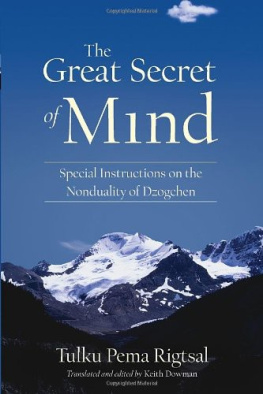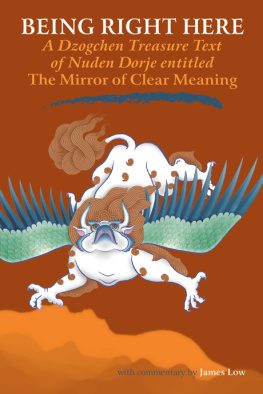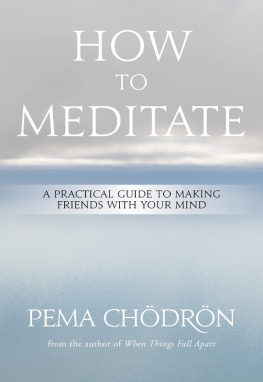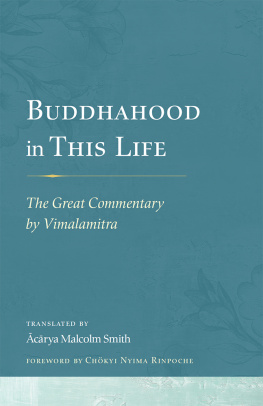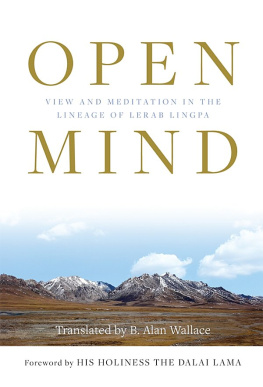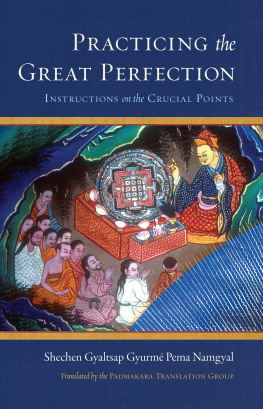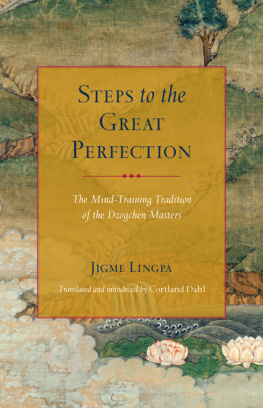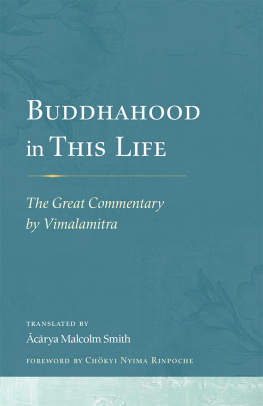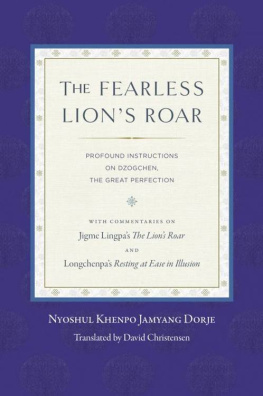I pray with whatever prayers I know that the great waves of benefit that [Tulku Pema Rigtsal] generates for Buddhas teaching in general, and particularly the study and practice of the Kama and Terma teachings of the Nyingma and Tersar traditions, from his ancestors up to his holy father, increase like rivers in summertime, and that he has a long life.
Dungse Thinley Norbu Rinpoche
I strongly recommend this work to all those who meditate. I believe this work will bring benefit to people of both the West and the East who have an interest in Dzogchen, and I urge everyone who wants to practice buddha-dharma to take time to read this book.
Domang Yangtang Tulku
The fundamental teachings of Mahayana Buddhism in general and of Dzogchen in particular are elucidated in this book in the clearest possible way. For anyone who is open to learning the sacred secret of the mind that we all treasure, this is an eye-opening book to read.
Tulku Thondup Rinpoche, author of Peaceful Death, Joyful Rebirth
The Great Secret of Mind is the condensed meaning of buddha-dharma and particularly the Nyingma teachings.... I am pleased by his work and pray to the Triple Gem and bodhisattvas that it may benefit all students of Buddhism.
His Holiness Penor Rinpoche
ABOUT THE BOOK
Dzogchen (Great Perfection) goes to the heart of our experience by investigating the relationship between mind and world and uncovering the great secret of mind's luminous nature. Weaving in personal stories and everyday examples, Pema Rigtsal leads the reader to see that all phenomena are the spontaneous display of mind, a magical illusion, and yet there is something shining in the midst of experience that is naturally pure and spacious. Not recognizing this natural great perfection is the root cause of suffering and self-centered clinging. After introducing us to this liberating view, Pema Rigtsal explains how it is stabilized and sustained in effortless meditation: without modifying anything, whatever thoughts of happiness or sorrow arise simply dissolve by themselves into the spaciousness of pure presence.
The book is divided into chapters on the view, meditation as the path, conduct, the attainment, and the four bardos. Each chapter consists of mini-sections that can be read as stand-alone Dharma talks. Pema Rigtsal has studied and lived with several authentic Dzogchen masters and has surprising stories to tell about their unconventional methods to introduce students to the subtle view of Dzogchen.
TULKU PEMA RIGTSAL is one of the last Tibetan tulkus to receive the benefit of a full traditional training with no disruption from political conflict, and one of the last to head a traditional monastery. He lives in Nepal.
Sign up to learn more about our books and receive special offers from Shambhala Publications.

Or visit us online to sign up at shambhala.com/eshambhala.
The Great Secret of Mind
SPECIAL INSTRUCTIONS ON THE NONDUALITY OF DZOGCHEN

A translation of the Tibetan
Sems kyi gsang ba mngon du phyung ba
Tulku Pema Rigtsal
Translated and edited by Keith Dowman
SNOW LION
BOSTON AND LONDON
2012
Snow Lion
An imprint of Shambhala Publications, Inc.
Horticultural Hall
300 Massachusetts Avenue
Boston, Massachusetts 02115
www.shambhala.com
2012 by Pema Riksal Lama aka Pema Rigtsal Rinpoche
Cover design by Jim Zaccaria
All rights reserved. No part of this book may be reproduced in any form or by any means, electronic or mechanical, including photocopying, recording, or by any information storage and retrieval system, without permission in writing from the publisher.
Library of Congress Cataloging-in-Publication Data
Padma-rig-rtsal, Sprul-sku, 1963
[Sems kyi gsa ba mon du phyu ba. English]
The great secret of mind: special instructions on the nonduality of Dzogchen: a translation of the Tibetan Sems kyi gsang ba mngon du phyung ba / Tulku Pema Rigtsal; translated and edited by Keith Dowman.
pages cm
Translated from Tibetan.
Includes bibliographical references.
eISBN 978-0-8348-2904-6
ISBN 978-1-55939-401-7 (alk. paper)
1. Rdzogs-chen. I. Dowman, Keith, translator, editor. II. Title.
BQ7662.4.P33913 2012
294.3422dc23
2012010125
Contents
The nature of the mind is the ultimate sphere, like space.
The nature of space is the meaning of the innate nature of the mind.
In truth they are not separate: oneness is the Great Perfection.
Please, you must realize it at this very moment.
L ONGCHEN R ABJAM
A WAKENING OF intrinsic awareness ( rig pa ), the innate nature of the mind as it is, is the realization of the ultimate nature of everything and the attainment of buddhahood. That is the great secret of the mind.
Each person is composed of body and mind. The body is precious, but like a hotel, it is a temporary abode of the minda collection of gross elements destined to dissolve into the earth.
Mind is a stream of consciousness produced and functioning by grasping at mental objects as if they had a truly existing self or entity ( bdag dzin ) with the passion of emotionscreating positive and negative deeds ( karma ) and causing joyful and painful reactions. Mind, not the body, is the identity of who we are as an ordinary person.
According to esoteric Buddhist teaching, such as Dzogpa Chenpo ( rdzogs pa chen po ; mahasandhi ) or Dzogchen, the Great Perfection, mind has two aspects: the conceptual or relative mind ( sems ) and intrinsic awareness, the true nature of mind ( sems nyid ), which is buddhahood. Intrinsic awareness is the ever-present unity of the ultimate sphere ( dbyings ) and primordial wisdom ( ye shes ) as one taste.
Through training in meditation, we purify the two obscurationsemotional afflictions ( nyon sgrib ) and intellectual duality ( shes sgrib )of the mind, and we perfect the twofold accumulation ( tshogs )meritorious deeds ( bsod nams ) and realization of wisdom ( ye shes ).
As the result of such meditations, we realize the intrinsic awareness of the mind, the essence of which is openness (or emptiness stong pa nyid ) and the nature of which is clarity ( gsal ba ) and compassionate power that is ceaseless and all-pervasive. Then, naturally, we attain the threefold buddha-body: the perfection of twofold purity is the ultimate body ( chos sku ) of buddhahood. The ever-present pure forms ( sku ) of the five classes ( rigs ) of buddhas and the pure-lands ( zhing khams ) with fivefold wisdom ( ye shes ) and five certainties ( nges pa ) are the enjoyment body ( longs sku ). The emanation of infinite appearances to serve ordinary beings is the manifestation body ( sprul sku ). Kunkhyen Longchen Rabjam says,
Having perfected the skillful means [merit] and wisdom,
You accomplish buddha-bodies, wisdoms, and actions.
All beings possess such buddha-nature in their innate nature. For most of us, though, it remains secret, as we have not even a clue as to its presence because it has been fully covered by the emotional and intellectual clouds of the mind that are rooted in dualistic grasping.
Attainment of buddhahood is not about getting somewhere else through some external means. It is about awakening the innate nature of our own mind itself, as it is, and transcending the conceptual mind. Rigzin Jigme Lingpa writes,
Realization of the intrinsic awareness that transcends the mind
Is the unique teaching of Dzogpa Chenpo.
Next page
